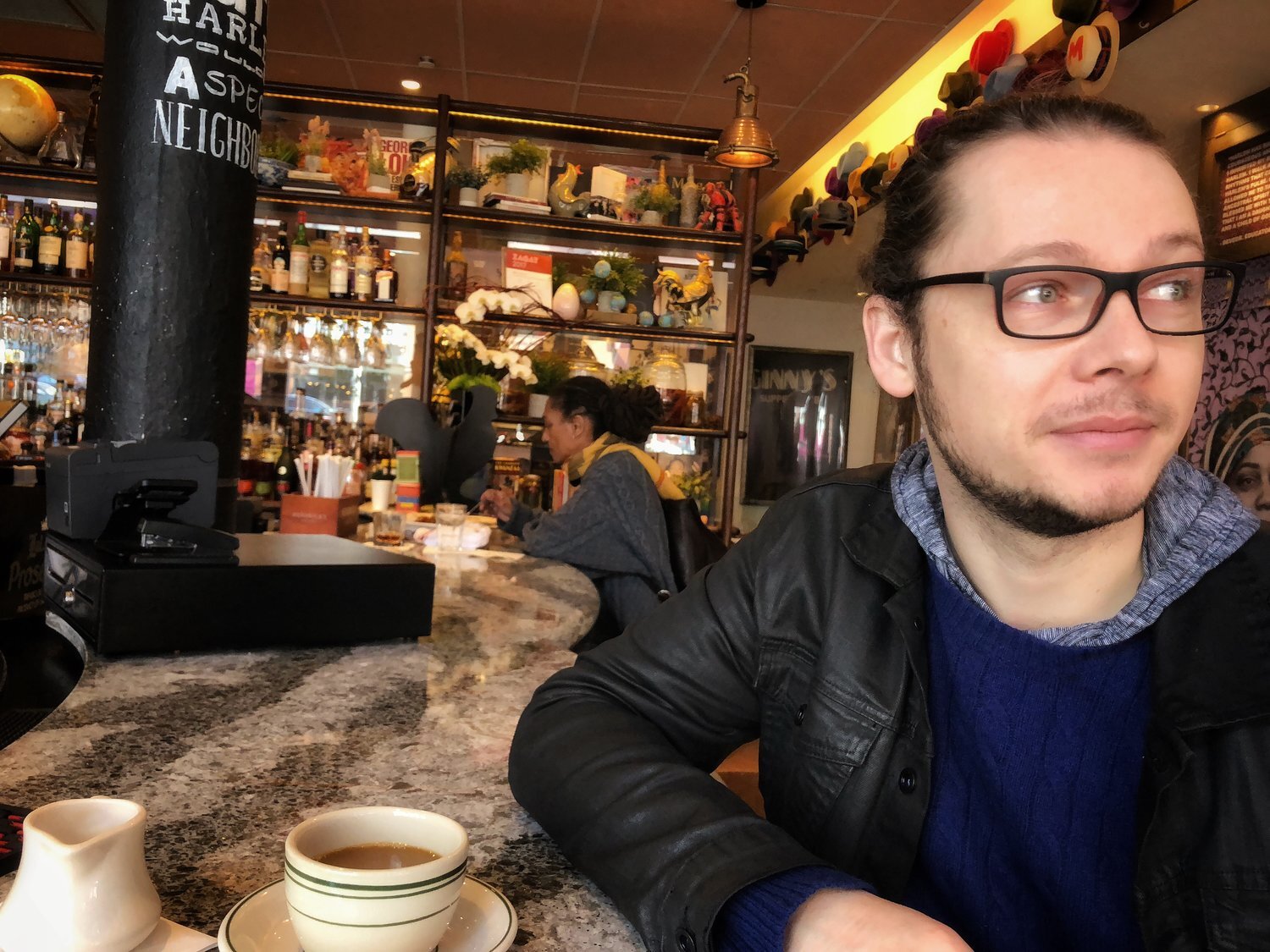Interview with Mihai Marica
Mihai and I met two years ago through Francisco Fullana. I was desperately looking for a cellist who could play chamber music with me at the audition for Carnegie Hall’s Ensemble Connect and, since I was still living in Berlin at the time, I didn’t know anyone in New York who could put it all together in an hour. From the moment we started playing, it felt like we had already done it many times before. So it was thanks to him (and pianist Carlos Avila) that I was accepted and am currently a fellow at Ensemble Connect! We’ve worked together on many occasions since and he’s always been an absolute pleasure to work with, both as a musician and as a person. I’m so thrilled to have him on this project!
What was the first piece by Britten you’d ever heard?
When I first came to the US in 2001, my friend gave me some recordings to listen to. That’s when I heard Britten playing Schubert’s Arpeggione on the piano with Rostropovich on the cello. So I actually heard him play before I heard his piece! After that, I also heard a recording of his Cello Sonata with him playing.
Well, you finally got to learn the Cello Sonata!
Yes! As I was learning the Sonata for your project, I listened to the recording again and it kind of amazed me. It really sounds like a live performance even though it’s a recording, and I really appreciate that.
How would you describe his music in a few words?
I feel like he’s so clear in his intentions that he really gets across the emotional content very efficiently. When I was playing his First Quartet, there was a moment in the slow movement when I felt emotionally like I was in the audience, even though I was performing. Because it’s so powerful in the way it’s sculpted, down to the essence.
What do you think are some of the challenges we face as young artists? How do you find your own voice today?
There are many challenges. But for me the question is: Do my ideas and what I have to say fit into the expectations of others? That includes the audience, presenters, managers, reviewers, etc. That’s a distraction.
Another thing is that the audience sometimes expects to hear what they heard on the recording. Because if you’re into music, you’re gonna go home and listen to it a lot. Recently, I’ve felt the need to vocalize the difference between a live performance and recorded music. I mean, why did Glenn Gould decide to be a studio recording artist? Or why didn’t Celibidache want to have his concerts recorded? Having spent more time performing, I think I understand that a little bit better now.
How so?
I think it’s just completely different environment and different process of creation. I like what Celibidache says: the moment you record something, you lose a lot of data. Because you can’t really recording everything. Not to mention that in a live performance, everyone is involved. But when your audience expects what they heard at home, you’re immediately disconnected— you’re observed, as if you’re on a dissection table. This inhibited me for a while. It takes a while to develop the confidence to ignore that.
People don’t go hear classical concerts the same way they go hear jazz concerts. In jazz concerts, you don’t go expecting to hear the same thing as the recording. Maybe the same bass line, but that’s it. Everything else is improvised. Whereas a lot of us classical musicians know some recordings to the point you know the exact phrasings!
Do those thoughts enter your mind when you learn a new piece?
When I’m learning a new piece, I usually stay away from recordings until I have a strong enough idea. But having been doing this for while, it’s become less and less of a worry. You naturally have a very individual voice. It’s just that in the early years of development, it’s important to cultivate your own voice.
If you could ask Britten one question, what would it be?
What particularly attracted you to Slava? How did he bring so much goodness and incredible material to your music?
Interviewed on January 24, 2018
Find out more about Mihai here: www.mihaimarica.com



